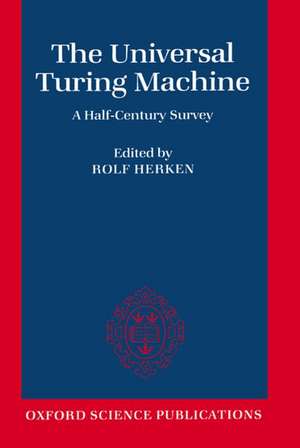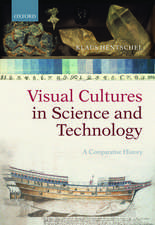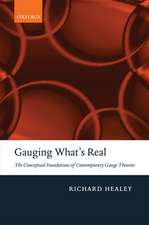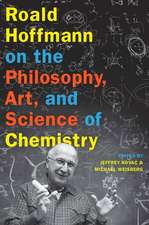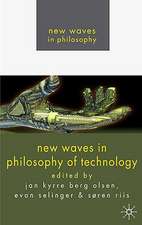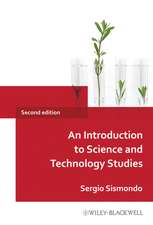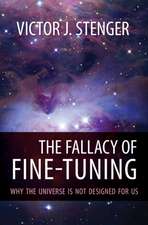The Universal Turing Machine: A Half-Century Survey
Editat de Rolf Herkenen Limba Engleză Paperback – 15 aug 1991
Preț: 368.49 lei
Preț vechi: 561.49 lei
-34% Nou
Puncte Express: 553
Preț estimativ în valută:
70.51€ • 73.88$ • 58.29£
70.51€ • 73.88$ • 58.29£
Carte tipărită la comandă
Livrare economică 01-07 aprilie
Preluare comenzi: 021 569.72.76
Specificații
ISBN-13: 9780198537748
ISBN-10: 0198537743
Pagini: 676
Ilustrații: line figures throughout
Dimensiuni: 155 x 236 x 37 mm
Greutate: 0.99 kg
Ediția:1
Editura: OUP OXFORD
Colecția OUP Oxford
Locul publicării:Oxford, United Kingdom
ISBN-10: 0198537743
Pagini: 676
Ilustrații: line figures throughout
Dimensiuni: 155 x 236 x 37 mm
Greutate: 0.99 kg
Ediția:1
Editura: OUP OXFORD
Colecția OUP Oxford
Locul publicării:Oxford, United Kingdom
Cuprins
List of contributors; Preface; PART 1: A. Hodges: Alan Turing and the Turing Machine; S.C. Kleene: Turing's analysis of computability, and major applications of it; R. Gandy: The confluence of ideas in 1936; S. Feferman: Turing in the Land of O(z); M. Davis: Mathematical logic and the origin of modern computing. PART 2: M.A. Arbib: From universal Turing machines to self-reproduction; M.J. Beeson: Computerizing mathematics: Logic and computation; C.H. Bennett: Logical depth and physical complexity; A.H. Brady: The busy beaver game and the meaning of life; G.J. Chaitin: An algebraic equation for the halting probability; M. Conrad: The price of programmability; E. Dahlhaus & J.A. Makowsky: Gandy's principles for mechanisms as a model of parallel computation; M. Davis: Influences of mathematical logic on computer science; J.E. Fenstad: Language and computations; D. Finkelstein: Finite physics; O. Goldreich: Randomness, interactive proofs, and zero-knowledge - a survey; Y. Gurevich: Algorithms in the world of bounded resources; B. Hasslacher: Beyond the Turing machine; M. Koppel: Structure; J.A. Makowsky: Mental images and the architecture of concepts; D. Michie: The fifth generation's unbridged gap; R. Penrose: On the physics and mathematics of thought; R. Rosen: Effective processes and natural law; H. Schnelle: Turing naturalized: Von Neumann's unfinished project; U. Schöning: Complexity theory and interaction; J.C. Shepherdson: Mechanisms for computing over arbitrary structures; B.A. Trakhtenbrot: Comparing the Church and Turing approaches: two prophetical messages; O. Wiener: Form and content in thinking Turing machines; Appendix.
Recenzii
'... a fitting tribute to one of the most influential figures in mathematical logic and computer science.' Journal of Logic and Computation
'a generally well-written account of Turing's work which manages to convey the broad scope of his influence on later developments in mathematical logic, computer science, and artificial intelligence. I would recommend the book to anyone who has an interest in computability theory or mathematical logic and its applications in computer science... One of the great merits of the book is that it is relatively self-contained and the material is largely expository and consequently the book will also attract the lay reader who is interested in the development of mathematical ideas... this collection is to be welcomed as a fitting tribute to the work of one of the most influential figures in mathematical logic and computer science.' Journal of Logic and Computation
'a generally well-written account of Turing's work which manages to convey the broad scope of his influence on later developments in mathematical logic, computer science, and artificial intelligence. I would recommend the book to anyone who has an interest in computability theory or mathematical logic and its applications in computer science... One of the great merits of the book is that it is relatively self-contained and the material is largely expository and consequently the book will also attract the lay reader who is interested in the development of mathematical ideas... this collection is to be welcomed as a fitting tribute to the work of one of the most influential figures in mathematical logic and computer science.' Journal of Logic and Computation
